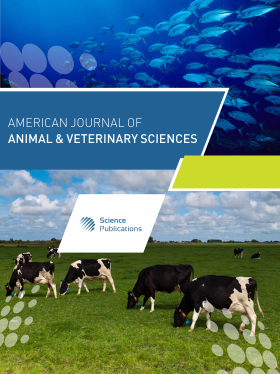Dietary β-glucan Leads to Increased TNF-α Production in the Lung
- 1 North Carolina A and T State University, United States
- 2 Drexel University College of Medicine, United States
- 3 North Carolina State University, United States
Abstract
Problem statement: Beta (β)-glucan is notable for its ability to stimulate the immune system and as such β-glucan and products containing β-glucan are used as dietary supplements for livestock and companion animals. β-glucan has been shown to activate macrophages and neutrophils and modulate the production of certain cytokines, including the pro-inflammatory cytokine, Tumor Necrosis Factor Alpha (TNF-α). Because TNF-α is a contributing factor in a number of chronic inflammatory diseases and is present at higher concentrations in bronchoalveolar fluid from patients with asthma a preliminary experiment was designed to determine if a diet supplemented with β-glucan leads to increased TNF-α production in response to chitin, an ubiquitous environmental antigen that is associated with airway inflammation. Approach: Mice were divided into two groups. One group was given normal rodent chow and water while the other group was given normal rodent chow and water containing β-glucan (1 mg mL-1) for 14 days. After 14 days, two experimental protocols were conducted to evaluate TNF-α production. In experimental protocol 1, mice were injected intraperitoneally with 4% thioglycollate broth and TNF-α production from the immune cells elicited into the peritoneal cavity was evaluated. In experimental protocol 2, mice were exposed to either chitin or PBS (as a control) via intranasal administration for two consecutive days. Six hours post secondary exposure, Bronchoalveolar Lavage Fluid (BALF) was collected and ELISA for TNF-α performed. Results: TNF-α expression by thioglycollate-elicited cells isolated from animals that consumed β-glucan was greater (27 fold) than controls. Similarly, dietary β-glucan was also associated with increased TNF-α expression (four fold) in the lung, after chitin exposure in vivo. Conclusion: These preliminary results suggest that dietary β-glucan may promote inflammatory responses after exposure to chitin and therefore could be contributing factor to lung inflammation particularly in animals prone to airway inflammatory diseases.
DOI: https://doi.org/10.3844/ajavsp.2012.55.60

- 4,146 Views
- 4,502 Downloads
- 0 Citations
Download
Keywords
- Inflammation
- allergy
- prebiotics
- nutrition
